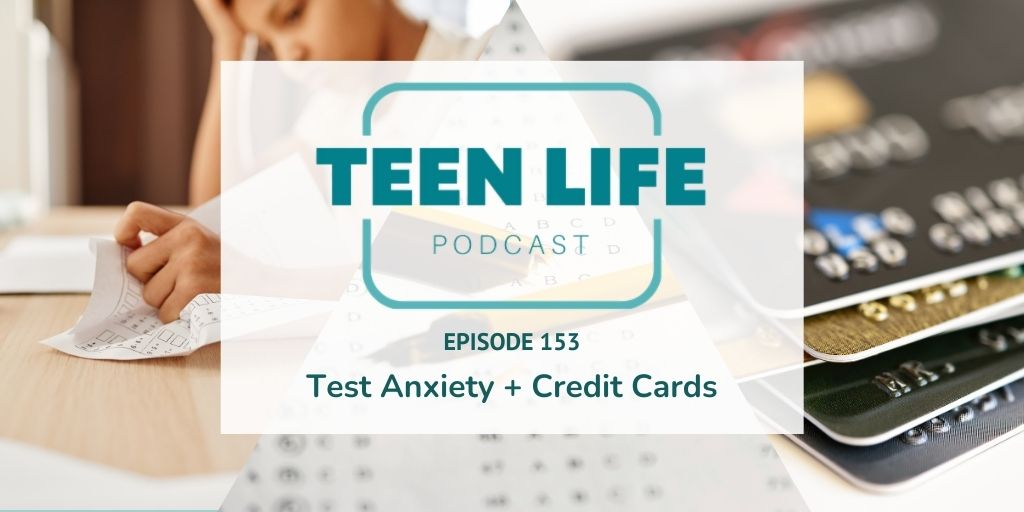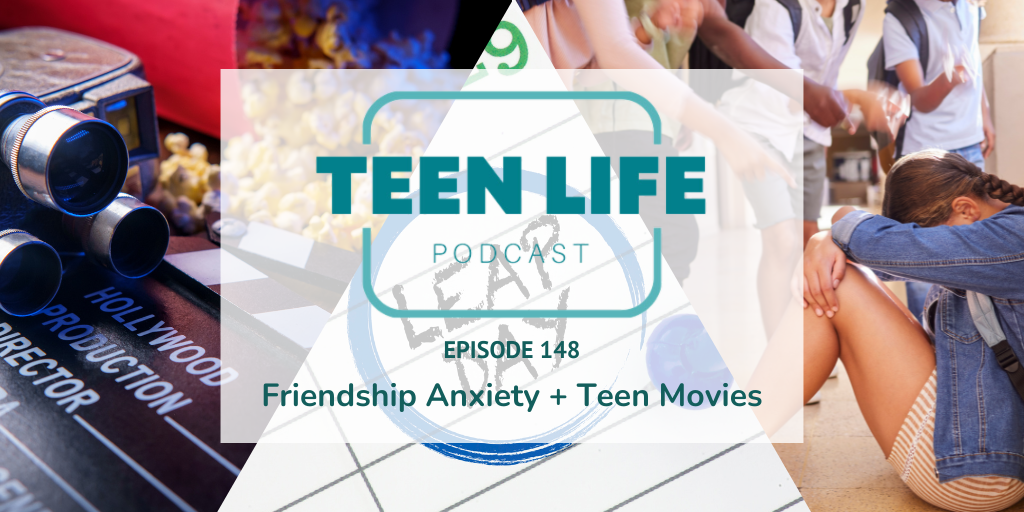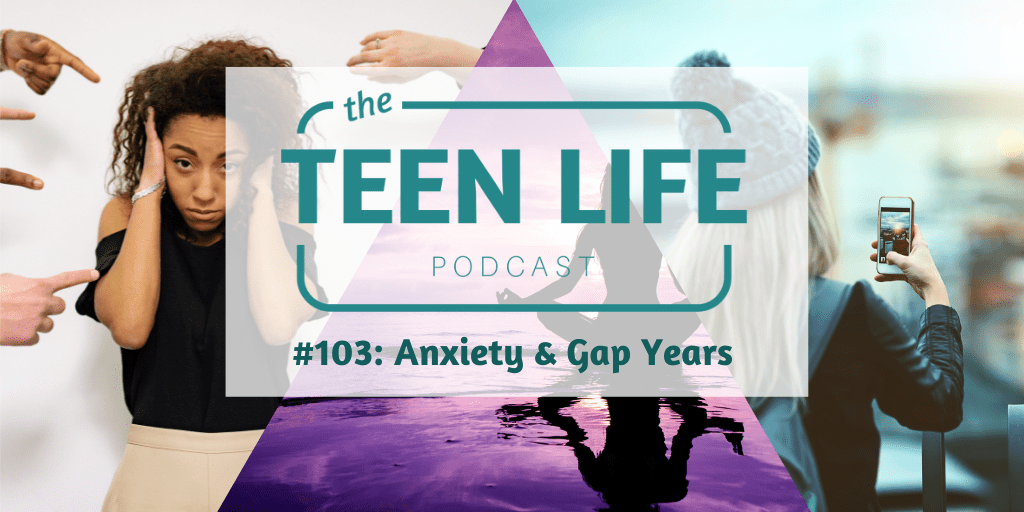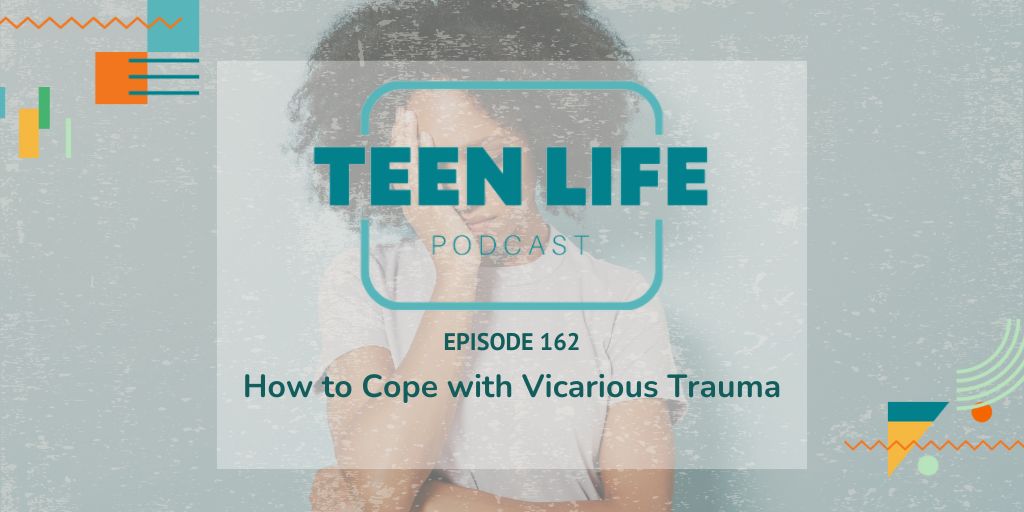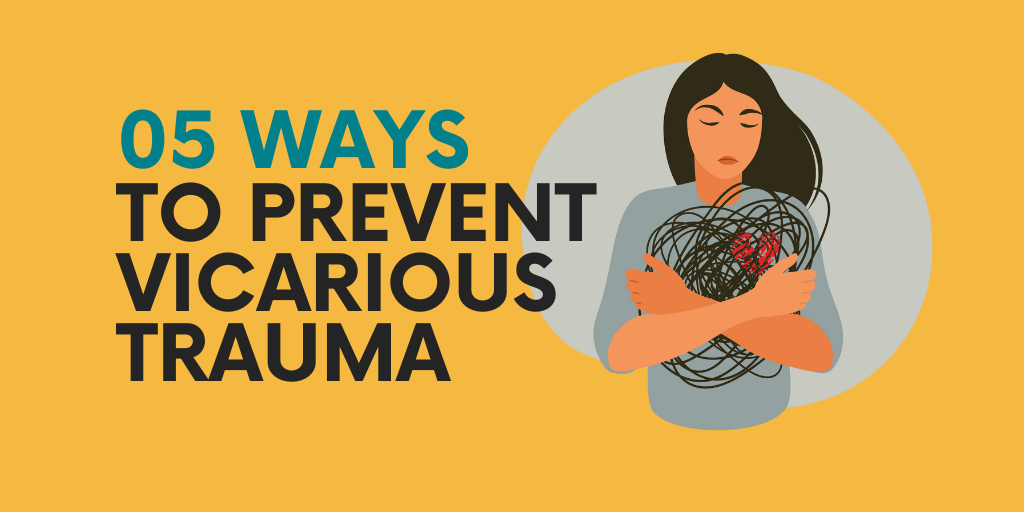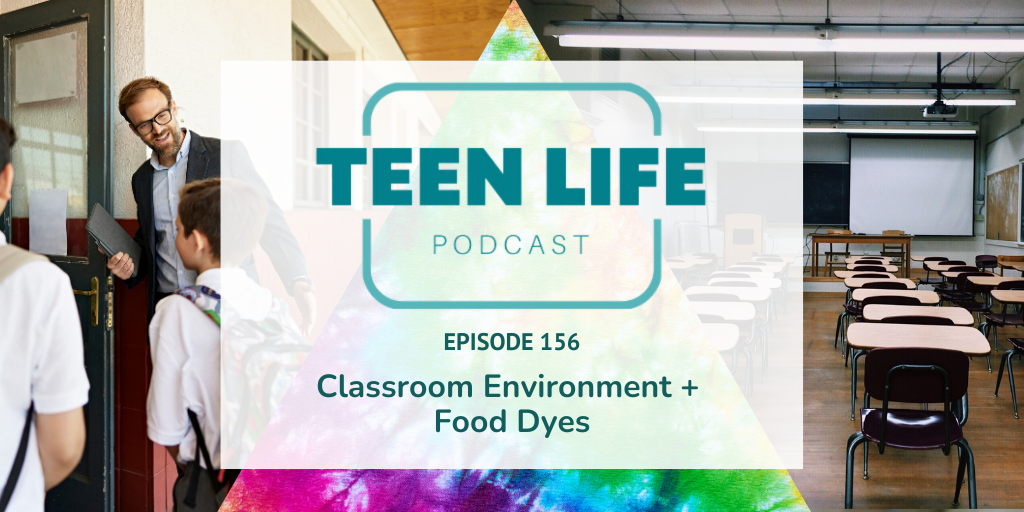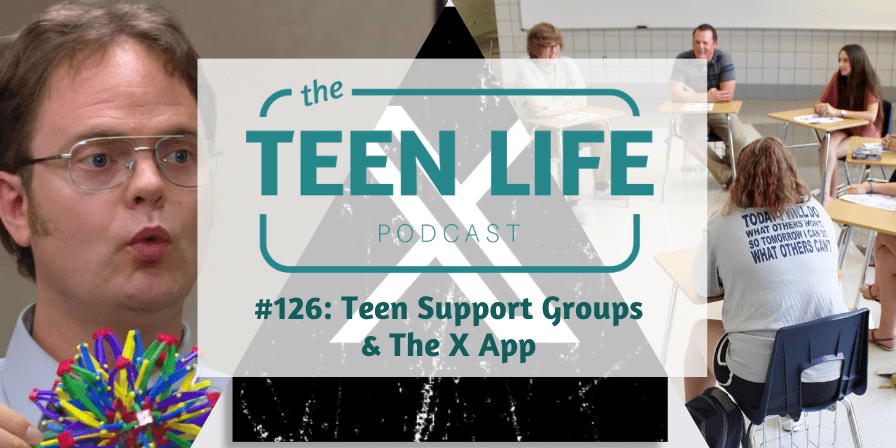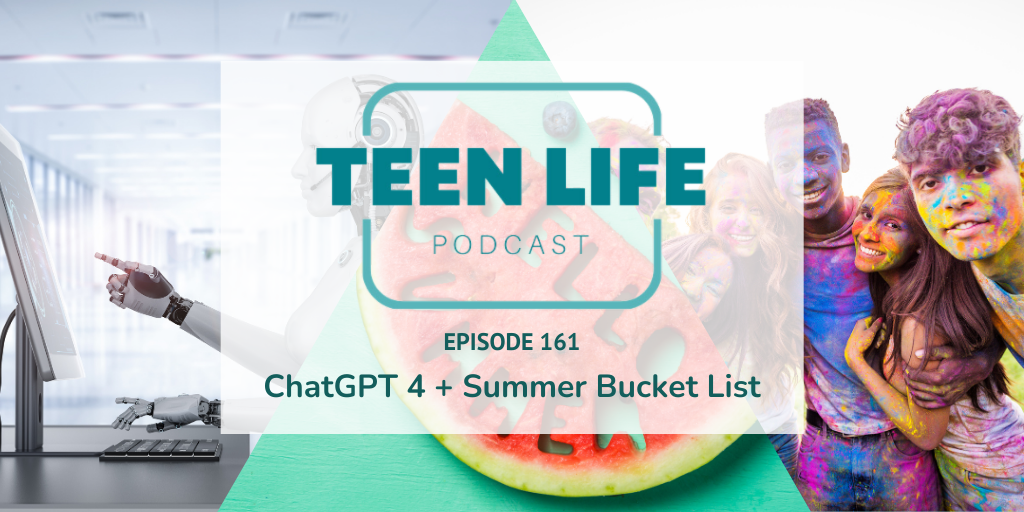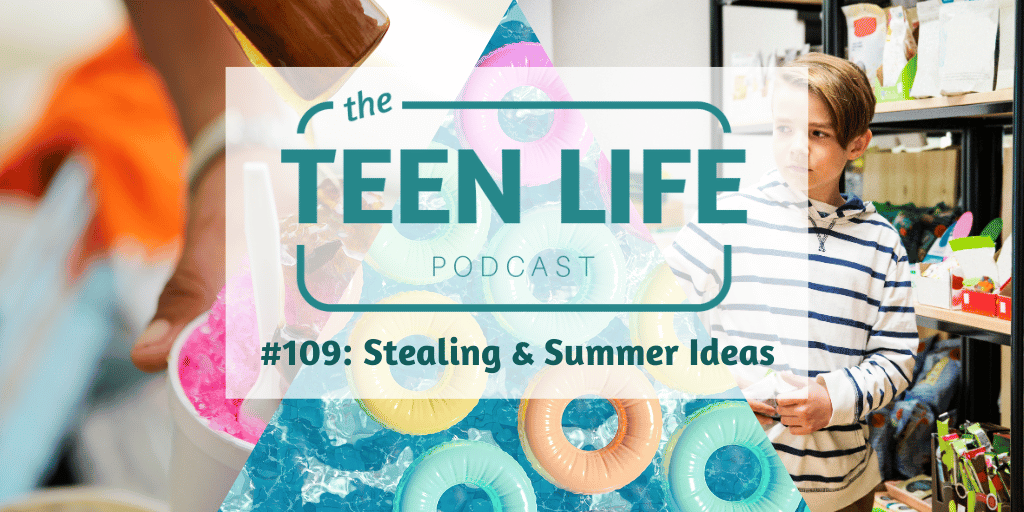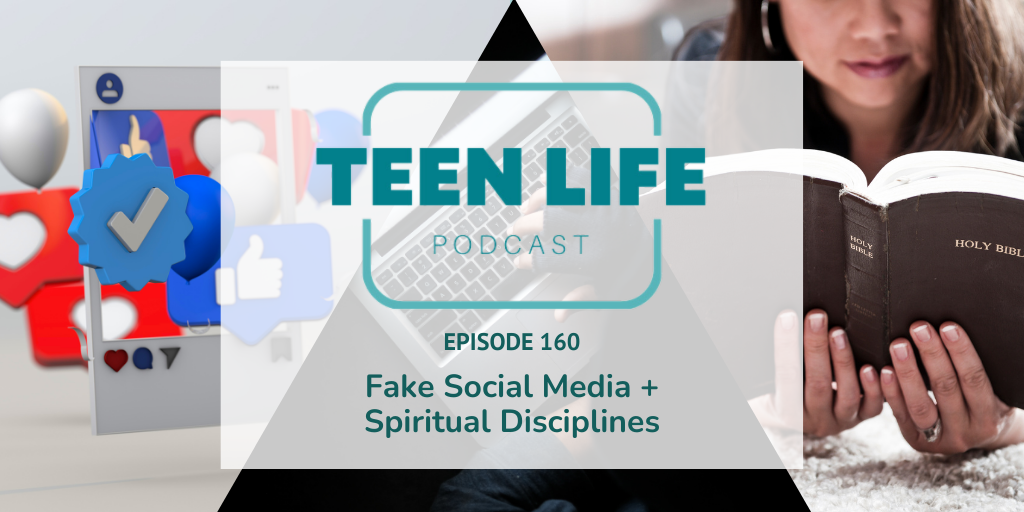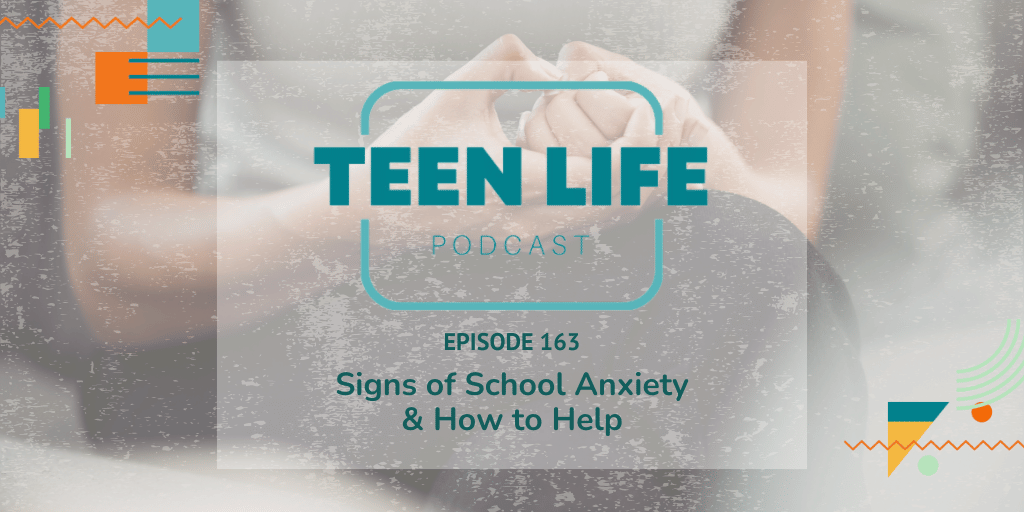
Signs of School Anxiety & How to Help | Ep. 163
Podcast: Play in new window | Download
School Anxiety: What It Looks Like and How to Help Teens Overcome It
Join us for a deeper look at the complex world of school anxiety and explore what it looks like in teens. Many caring adults may see changes in behavior but struggle to understand the root cause. Today, we’re breaking down common signs of anxiety at school, practical ways to support teens, and how to shift your perspective so you can help them navigate these tough moments with confidence.
Key Question
What Does Anxiety Look Like at School?
What to Look Out For
You might notice your teen avoiding school or withdrawing from activities they once enjoyed.
These behaviors can be signals of school anxiety:
- Not wanting to go to school – Consistent resistance to attending school or frequent complaints without a clear reason.
- Isolation – Your teen may prefer to be alone rather than interacting with friends or participating in activities.
- Complaining about physical symptoms – Stomach aches, headaches, or other vague symptoms that happen regularly before school.
- Not bringing back schoolwork – Missing assignments or unfinished projects can sometimes be a sign of emotional overwhelm, not just laziness.
- Closed-off body language – Watch for hunched shoulders, crossed arms, or avoiding eye contact.
A Note for Adults: Role Modeling a Healthy Approach to Anxiety
Teens often look to the adults in their lives to understand how to handle emotions. If you’re feeling anxious, it can be helpful to verbalize your thought process. For example, you might say: “I’m having a tough day. I’m going to take a 5-minute break to regroup and then we can continue!”
This shows teens that it’s okay to feel anxious, but also that there are ways to cope and move forward.
Perspective Shift
Expect Difficult Things
Anxiety is a normal part of life, and we can expect teens to do hard things. Instead of stepping in to rescue them, believe in their ability to face challenges and grow. When we constantly step in, it unintentionally sends the message that we don’t believe they can handle it.
- Validate their feelings: Acknowledge their anxiety without promising that everything will be easy or fun.
- Encourage resilience: It’s okay to push them to keep going, even when it feels hard. Coddling can send the wrong message.
TL Tips & Takeaways:
Point Out the Good:
Highlight the brave things you see them doing, even if they seem small.
Ask for Positives:
Encourage them to list two good things in their life right now to shift focus from anxious thoughts.
Resources for Parents:
If you have a teen who doesn’t want to go to school, keep scrolling down for a related episode that dives deeper into school refusal and what you can do about it.
Stay tuned for more episodes where we tackle the tough topics that help you support and mentor the teens in your life.
Remember, you are a powerful influence in a teen’s life!
Read Episode Transcript
Tobin Hodges (00:00)
What does anxiety look like at school? if you are like me and you are in education or have a, students in education, I have a high schooler. I see this from all sides of the coin. It seems like, on a daily basis. So today we’re going to answer that question. What does it look like at school? What does it look like for students? What does it look like for staff members? What does it look like for you as a parent?
We’re gonna kind of try to cover all bases and just as a reminder these are this is like our new podcast format We are gonna answer questions and if you have any please please please send us some because we would love to answer questions from our listeners To help you with the things that you need help with because that’s what we are here for so today. Let’s start off with this What do you guys from your- from y’all’s- perspective as former students as Karlie you have kids that you have two kids that have started school now and you work with school staff and Caleb you work with school staff as well. What do you all see? What does it look like for you whenever you see anxiety in school?
Karlie Duke (00:59)
Well, do have, I mean, he’s little, so he’s not a teenager. But last year we dealt with some of this with my son. mean, he loved school, but if there was a sub, he would panic. Like he would fixate on it before we left for school. He would talk about it like…
She’s not going to be there. She’s not going to be there. Well, who is going to be there? Well, what if y ‘all forget me at school? What if I’m not like he would go run through all these what ifs he would go to the nurse and like complain about like he was coughing or having trouble breathing or and like we kind of got to a point where like, is he really because the nurse was like, he seemed fine to me or was that his anxiety coming out of when he would feel anxious thoughts or feelings?
that he’d be like, I need to go to the nurse. And so that’s kind of what we’ve seen and walked through with my son. He’s doing much better this year, which is great, but it’s really hard to sit there and kind of be like, as someone who doesn’t struggle with anxiety as much, be like, come on, like suck it up, go to school. It’s not that big of a deal. You’re going to have fun. have all these friends, but like,
Caleb Hatchett (02:12)
Yeah.
Karlie Duke (02:16)
We have to sit in that moment and make them feel heard also without coddling them being like, sure, you don’t have to go to school today because there’s a sub. And so finding that balance and I know we’re going to talk about that some more too, but.
Caleb Hatchett (02:22)
Yeah. Yeah.
Tobin Hodges (02:22)
Yeah.
Interesting- yeah that’s like usually kids are like sweet sub I get to watch a video or do easy worksheets but yeah that’s that’s interesting okay what about you
Caleb Hatchett (02:28)
I think.
Karlie Duke (02:35)
Yeah, the routine was tough.
Caleb Hatchett (02:36)
I think for me it’s like, especially since the school year started up and I’ve interacted with my students in the youth group and stuff like that, just like, hey, how’s school going? It’s interesting to me because like, I know I was a little weird. I always enjoyed going back to school a little bit, you know, like after summer, things like that. I’m like, man, I miss my friends. I even miss it. Like a few teachers, like just like structure and being able to like…
do things and like know I know what to expect and now it’s just kids don’t like school and it’s just kind of like it tends to be the answer I get like how school okay and I think like too what I’ve realized is like a
Karlie Duke (03:04)
Mm -hmm.
Yeah
Caleb Hatchett (03:20)
School is an anxious place Like it just is I mean like students you’re getting graded on things like you’re getting literal feedback- a numerical grade- on how well you’re doing or not like that’s stressful that can cause anxiety I mean the whole like social situation Everything like it’s just like it’s an anxious place and so like having grace and I don’t know like it’s probably not even a thing where like every student experiences anxiety going to school every single day, but I would
Almost promise you every student has felt anxiety going to school whether it’s about a test whether it’s about a substitute teacher. Asking a girl out During you know lunch period like i’m sure like every this is someone like Everybody’s experiencing anxiety at school just because it’s an anxious place of just of a lot of of things to be anxious about so
Tobin Hodges (04:13)
Yeah. I think whenever I was in school, like I definitely had anxiety and had anxious moments or areas of my life, but like school actually felt like it wasn’t anxious for me.
Caleb Hatchett (04:25)
Hmm.
Tobin Hodges (04:27)
I don’t, and then like looking back, I think it’s more of, that was like kind of like you. liked being around my friends. I liked doing what I was doing. I was definitely on the shyer side when I was younger, but when I got to high school, that kind of went all went away. But, my anxiety was always more around getting the stuff done that I needed to get done because I had.
Caleb Hatchett (04:31)
Yeah.
Mm
Tobin Hodges (04:44)
band and I was in basketball and I had a job and I had a single mom, so I was having to take care of siblings as well. so my anxiety was more about the amount of work that was due. so a lot of that was where I struggled the most. so some things that if you’re listening, especially as a parent, the things you might notice is the kid might not want to go to school. Kind of like what Karlie was saying about her son. If they’re isolated, if…
I think my oldest is kind of like this in some ways, like he’s one of those people that has like three friends and he’s probably fine with that and that’s okay. Like there’s nothing wrong with that. But for a while, it felt like he was isolating himself. Like I was just like, why are you always by yourself or why are you eating by yourself? That kind of stuff. And so it might be isolation in school. if your student is talking about.
Karlie Duke (05:23)
Yeah.
Tobin Hodges (05:35)
Like are never talking about people that they’re hanging out with that might be something to kind of like probe a little bit and just kind of kind of fill out. Because again, sometimes it can be OK. Like that’s my kids case. If they’re complaining about being sick a lot, that’s a pretty it’s a pretty clear cut sign. I think that’s a pretty obvious sign for most people. And like I said, in my case, not bringing back projects or homework, sometimes the anxiety of just not turning things in because you don’t want to get a bad grade. Like even though like
Karlie Duke (06:03)
Mm
Tobin Hodges (06:04)
As an adult, look at that and you’re like, hey, as long as you turn it in, you’re at least going to get something. But as a kid, you think I don’t want to be judged. I don’t want to turn that in because I don’t want to know how bad I did it. I don’t or, you know, lots of things could go into that, but.
And then, know, in like this body language, sometimes it’s hormones. Sometimes it’s not. Sometimes it can be more than that. And so just kind of being in tune with your student to know what’s going on with that kind of stuff. The other thing too, that I see a lot in my son is, and this is something that you kind of have to kind of toe the line as a parent is my son does not want to have conversations with teachers like ever. Like if it’s a confrontation or if it’s a need to go ask a question, he will always revert to emailing them, which I know some of that is the generation in the society that we’re in, like I’m as a parent, I’m trying to also instill like, it’s okay to have a face -to -face conversation in these situations because sometimes those things go better face -to -face than they do. Like if you’re, especially if you’re talking about, Hey, I need to make up work or I’m struggling. It’s not going to come across as well in an email as it will face-to-face. so like that causes my son anxiety. Like he won’t go talk to teachers. Like, like, unless I’m basically shoving him there. And so.
Karlie Duke (07:11)
Mm -hmm.
Tobin Hodges (07:19)
I don’t know if anybody else has seen that in their students before, that’s something that I know causes my son anxiety a lot, for sure.
Karlie Duke (07:25)
Interesting. Now, last week we talked about vicarious trauma. And one of the things we talked about was kind of setting boundaries or verbalizing if you need boundaries or a break. So especially for adults and our school people, if you are having any anxious thoughts throughout the day or throughout the year, that is also an opportunity for you to verbalize your thought process so that students can see that model.
Tobin Hodges (07:44)
Mm
Karlie Duke (07:53)
I think it’s important that we also model healthily how to take care of ourselves. So if you’re like, Hey, I’m having a really, and you don’t have to go into details, but even just something like, Hey, I’m having a really tough day. So I’m going to sit at my desk for five minutes. I want y ‘all to work on something and then we’ll get back into it. Like kind of talking them through what that looks like so that they can do that too. But I think something that.
we’re going to try to do in all of our episodes is kind of give a perspective shift of something to think about differently. And the first thing is it’s okay to feel anxious. It’s okay for our students to feel anxious, but we can still expect them to do hard things. And so I think sometimes unintentionally, if our students are worried about something or having anxious thoughts and you, I’m going to use the word coddled, but that might be too strong of a word.
but you help them in ways what you’re actually telling them or you’re like stepping in to rescue them, what you’re unintentionally telling them is that you don’t think they can do it on their own. Like where you’re trying to help them in the back of their mind, they’re like, man, mom doesn’t think that I can do this or this teacher doesn’t think that I can do this project and so she’s giving me different things than everyone else.
Like it’s okay to acknowledge and if you, if they need help, but be like, Hey, but I still expect you to do this. know this is going to be difficult, but you still have to show up to school. You still have to do your work. You still have to come to practice all of those things. And so I think that’s really important too of don’t just let them check out and be like, well, you don’t have to do this today. That’s not how that works.
Tobin Hodges (09:33)
Yeah. And from the school’s perspective too, if in listen, like I’ve struggled with this as a parent, but if you are trying to fix everything and if you are always trying to have the conversation instead of your student, especially as they get older, that’s going to create a weird student teacher relationship too of either the teacher will not trust to talk to the student and they will go directly to you. that creates a weird middleman or it’s going to make them think that they aren’t quite ready for the maturity level that’s maybe some things require in high school, like whether that be athletics, extracurriculars, whatever it may be. mean, like at some point, you know, you kind of have to let the students take care of their.
their stuff, even if they are anxious for that reason. Again, we’re we’re talking about teenagers, mainly, and especially probably older teenagers, especially. But at some point, you kind of have to let let them process through that in their own way, including taking care of it as well.
Karlie Duke (10:34)
Well, I have an example. When I was in high school, we, unfortunately, we took advantage of one of our teachers because she would be like, you poor things. But we would talk about how much homework we were getting on Wednesday nights. And we’re like, we’ve got church, we’ve got practice, it’s late. And she was like, that is unacceptable. No homework on Wednesday nights in my class. And I’m going to go to all your other teachers. And then that class became a like.
It was a geography class. This is no surprise if you know me because I’m awful with geography. I don’t know where anything is because like, for example, when we studied Africa, we watched the Lion King. Like that’s just kind of what we did in her class because she was worried that we had too much on our plate. But then what that also meant is like she didn’t think we could do that. She didn’t push us. I did not leave that class better than how I came into her class.
Caleb Hatchett (11:17)
Nice.
Karlie Duke (11:30)
because she was so worried about everything that we had on our plate that she was gonna take all of that away. Now, that is obviously an extreme example and our wonderful teachers are probably not doing that. But that’s where in her mind she was trying to be helpful. She wanted to help. But at some point, if you take everything away or if you make it where none of it’s difficult, they’re not going to leave better. They’re not gonna leave more prepared.
for you, but at the same time, it’s okay to sit there and validate their feelings of, Hey, I know this is hard. You don’t have to look at them and be, this is easy. It’s going to be fine when that’s just not the truth or they’re sitting there going, I’m really struggling. It’s okay to be like, Hey, I know what I assigned today is difficult. Or I know that what you’re going through with your friends today is not fun or easy, but let’s think through how, what are some steps that we can take to make this? What do you need from me to make this happen? But
put that on them and make them answer that instead of you just being like, here’s how I’m gonna help you today or here’s what you should do.
Tobin Hodges (12:32)
So coming from the school staff talking about perspective shifts, if you are a school staff listening in, it’s very easy to immediately write off a student or a teen for being quote unquote lazy or whatever in these situations. And listen, I’m very, very guilty of that as well when I was a teacher and still to this day sometimes as well. if you’re seeing these signs too,
There are things you can do as a teacher to maybe help with that. One thing I know that I did as a teacher is that whenever I had something heavy in the class, either a quiz or some sort of hard assignment, I would, I would have the room be calm when they came in, whether it’s with music, you know, maybe the lights dimmed a little bit. and then I would also preface, okay, today here’s, what’s going to be in front of you. I would lay out the plan in front of them because that helps- really it helps everybody, but it especially helps those, those anxious filled.
Karlie Duke (13:24)
Mm -hmm.
Tobin Hodges (13:30)
teens and just kind of knowing again teachers are doing this like some of you are probably saying yeah, dummy I do this already, but just kind of being aware of all those things of if you are coming in hot-
it’s going to set them up for a problem, an anxious problem as well. Sometimes that perspective of if a kid is always going to the bathroom in your class or always going to the nurse getting sick or always late on homework, you know, we talk a lot about, you know, at Teen Life about how what they’re bringing to school with them, that might be a time to check in.
And just be like, Hey, you tell me how are you today? I don’t care about work. I don’t care about what’s going on in class. What are you? How are you? Like, where, are you at one to five? And then just kind of checking out. if they, and if they, you know, tell you three, four, five, whatever, and you just kind of move on, or you, or you kind of make a mental note, Hey, they’re not ready yet, or they’re not telling me the truth, or maybe they really are fine. And I need to get over and move past it that kind of thing. And so, just as a school staff, just kind of keep in mind that…
Karlie Duke (14:31)
Mm -hmm.
Tobin Hodges (14:37)
Just as we as adults deal with this stuff on a daily basis, they’re dealing with it tenfold sometimes. And we don’t know the whole story behind it, what they’re going through either. So some tips and takeaways, just some easy things that we can do that we can start today if we wanted to. No matter if you’re a parent, a minister, student, whatever it may be.
Karlie Duke (14:47)
That’s good.
Tobin Hodges (14:58)
point out the things that they are doing well and the things where they are showing bravery through anxiety. if, if you know, I’ll use my son as an example, if I know that my son struggles with those, those interactions, and if I, if I know that he has taken it, taken initiative and done that with his teacher, I immediately point out, Hey, great job on that. Thank you for doing that, that kind of thing. And it just kind of solidifies like not one that’s the kind of behavior that we-
Karlie Duke (15:01)
Mm
Tobin Hodges (15:28)
that I need him to do as a parent, but two, it also solidifies that I’m recognizing that was a hard thing for him to do and it’s okay. And I’m glad that he did it. Yeah.
Karlie Duke (15:34)
Mm -hmm.
Caleb Hatchett (15:38)
And I think too, even like you said, as a teacher and if I’m assigning a hard test or something that will probably cause these kids anxiety, you know, cause Hey, it’s the, it’s the final exam. And there’s a few kids who will fail this class, you know, maybe let’s make this an environment where even they’re stepping into a calm, think even as a parent, right? Knowing some of these things, knowing some of these anxiety triggers for your kids. And then
Karlie Duke (15:52)
you
Caleb Hatchett (16:05)
being conscious about how even for me, I think back to my dad would take me to get Chick-fil-A breakfast. I could slam a chicken biscuit. And so, that was something I looked forward to and he did it on game days. And that for me, I was always a little anxious on game days. Like it was school. Yes. But also the, you know, going through getting ready for the game and the game itself, we will just, was a, was a trigger for anxiety for me. And I don’t even think he was conscious about it.
But even just something to look forward to and it wasn’t even necessarily- let’s talk about your anxiety today- But it was just something that gave me something to look forward to that kind of helped
ease that day. And so, you know, if you know that there’s a big test coming up or a trigger for anxiety, even just creating a space or something that they can look forward to that day. I also think having conversations with your student on their time, because I look back, you know, in my time as a student, even talking to some parents I have a conversation coming right out of school, hey, how is school, let’s really dissect this day. And if school is an anxious place for them, they’re probably not want to have that conversation
Karlie Duke (16:48)
Hmm.
Caleb Hatchett (17:15)
just leaving that place that caused them anxiety. They’re probably still in fight or flight, still trying to process. And so just creating the right times to have those conversations. I know a parent who brings their dog with them whenever they pick the kids up from school. And that just helps even the conversations in the pickup line immediately, because it’s something that they feel comfortable with and reminds them of home and they feel safe around. And so I think there’s just little ways to create spaces
Karlie Duke (17:21)
Hmm.
Caleb Hatchett (17:44)
that your students feel calm even in, that you can control as a parent. Having those conversations on the time, try most of the time on their end, that works with them after they’ve processed instead of just the fight or flight of leaving school.
Karlie Duke (18:00)
I think too, especially if you’re on a school campus and you’re seeing this at school. One thing, Tobin kind of mentioned this at the beginning, believing the best about your students of if they’re not turning something in or if something went wrong. There are one-offs and there are bad days, but trying to think through there might be a reason for that. Can I start asking questions that are going to get to the bottom of that without being
invasive, but if you have a student who just regularly cannot get assignments turned in on time of, Hey, how’s life at home going right now? Or, Hey, how many, what are your responsibilities? Do you have a job? Are you doing sports? Are you in band? Do you have siblings that you have to pick up and take places after school? Like what is going on in figuring out how you can help them? Or are you worried about this? And is there something I can give you to help you prep ahead of time that’s going to let you know without giving them the answers, but hey,
they’re going to be, I had teachers do this before, which was really helpful before a test. There are going to be three questions that you have to write answers for and they’re gonna be 50 multiple choice. They didn’t necessarily tell me what the answers were, but that way I could get my mind wrapped around of, okay, I at least know what to expect if it’s not like I’m gonna have to sit there and write for an hour. And so thinking of ways that you can help if you have anxious students and maybe if you know you have an anxious student,
And they’ve talked to you about that seeing ahead of time, like, Hey, is there anything I can do that you think would help the class? Don’t put it just on them, but what would help the class feel better about this? And they might have some good ideas that you could use as well. I’m also going to link a podcast episode, especially if you’re a parent and have a student who doesn’t want to go to school.
That kind of talks, dives more into that and how to help them outside of school with school anxiety. So we’ll link that too, if you want to check the show notes.
Tobin Hodges (19:56)
Yeah, and just one last practical thing is it gets really easy to get bogged down in the negative. Just ask them two things that are going well in their life right now. It can be simple. I mean, it could literally be two versus a thousand bad things, but what are two things that are going well? especially with teenagers and boys especially, you’ll get the nothing, nothing’s going, you know, or,
Karlie Duke (20:21)
You
Tobin Hodges (20:22)
I’m at school, so nothing, you know, it’s like, might get angst and, you know, stuff for it, but just, you know, just, I always kind of say, Hey man, what’s a good meal you had lately? You know, then that kind of opens up an easy accessible answer. And so, just those are things that you can do to kind of, cause, we’re just trying to get their brain to think.
Karlie Duke (20:33)
Hmm.
Tobin Hodges (20:43)
positively in it the very minimum get their mind off of what’s causing them anxiety in that situation especially. So those are a couple of practical things that you can do in the car today if you wanted to.
Karlie Duke (20:55)
All right, well, that’s a wrap on this question. So subscribe on YouTube or wherever you listen to podcasts so you don’t miss our upcoming questions and episodes. And then, like we said at the beginning, please, please send us your questions. We want to know what questions you have and what would be most helpful for you and the students that you are around. So you can reach out on social media or you can email them to podcast@teenlife.ngo – I’ll also link that in the show notes for you to find and we’ll see you next time.
Links & Resources:
- Anxiety Society: Back to School Blues: A Clinical Perspective on School Anxiety

Karlie Duke
Communications Director

Tobin Hodges
Program Director

Caleb Hatchett
Podcast Host
Karlie Duke | Director of Communications
Karlie has always had a heart for teenagers. Through her role at Teen Life, she loves to showcase the amazing stories coming out of Support Groups, but she is especially passionate about helping adults and teenagers find connection. Karlie has a BS in Communications with a minor in Family Studies from Abilene Christian University.
Tobin Hodges | Program Director
Tobin’s entire career has been centered around students and teens from all walks of life. He has a passion for helping teens be their best selves. As Program Director, he loves working directly with school staff and students through Teen Life Support Groups. Tobin has a Bachelor’s Degree in Music from Texas Tech University.
Caleb Hatchett | Podcast Co-Host
Caleb loves helping teenagers take ownership of their faith and relationships. He graduated from Abilene Christian University with a degree in Youth and Family Ministry and is currently Student Ministry Director at Jenks Church in Oklahoma.
